Owning a home is one of the most significant financial investments a person can make, and protecting that investment should be a top priority. Homeowners insurance is a crucial safeguard against various risks, from natural disasters to liability claims. Without it, homeowners could face devastating financial losses that could take years to recover from. This blog explores why having homeowners insurance is essential, the types of coverage it provides, and how it benefits homeowners.
1. Protection Against Property Damage
One primary reason for homeowners insurance is to protect your home and its structures from damage caused by various events. Standard policies typically cover:
- Natural Disasters: Events such as fires, hurricanes, tornadoes, and hailstorms can cause severe damage to your property. Insurance helps cover the costs of repairs or rebuilding.
- Theft and Vandalism: If your home is broken into or vandalized, homeowners insurance can cover stolen items and property damage.
- Accidental Damage: Unexpected incidents such as a tree falling on your house or a burst pipe flooding your basement are also covered under most policies.
Without homeowners insurance, repairing or rebuilding after a disaster could be financially overwhelming.
2. Liability Coverage
Liability coverage is another critical aspect of homeowners insurance. If someone is injured on your property or if you accidentally damage someone else’s property, you could be held legally responsible. Homeowners insurance helps cover:
- Medical Bills: If a guest is injured in your home, your policy can cover their medical expenses.
- Legal Fees: If you are sued due to an accident on your property, insurance can help pay for legal representation and settlements.
- Property Damage to Others: If your child accidentally damages a neighbor’s window or your pet injures someone, homeowners insurance can help cover the costs.
Without liability coverage, homeowners risk significant financial burdens from lawsuits and claims.
3. Coverage for Personal Belongings
Homeowners insurance doesn’t just cover the physical structure of your home—it also protects the contents inside. This includes:
- Furniture, Electronics, and Appliances: If these items are damaged or stolen, your policy can help replace them.
- Jewelry and Valuables: Some policies include coverage for expensive items, though high-value belongings may require additional coverage.
- Clothing and Personal Items: If your wardrobe or other personal belongings are destroyed in a covered event, insurance can reimburse you for the loss.
Having coverage for personal belongings ensures you won’t have to bear the full cost of replacing essential items after a disaster.
4. Additional Living Expenses (ALE) Coverage
Homeowner insurance often includes Additional Living Expenses (ALE) coverage if your home becomes uninhabitable due to a covered event. This means:
- Temporary Housing Costs: If you need to stay in a hotel or rent another home while repairs are made, your policy helps cover those costs.
- Food and Other Essentials: If you incur additional expenses due to displacement, such as dining out more frequently, ALE coverage can help reimburse those expenses.
Without ALE coverage, finding alternative accommodations during home repairs could be a major financial burden.
5. Mortgage Lender Requirement
For most homeowners, having insurance isn’t just a smart choice—it’s a requirement. Mortgage lenders generally require borrowers to carry homeowners insurance to protect the investment. Without coverage, lenders may refuse to issue a mortgage or may force-place insurance at a higher cost to the homeowner.
Maintaining an active homeowners insurance policy ensures compliance with mortgage agreements and protects both the homeowner and the lender from financial loss.
6. Peace of Mind
One of the most invaluable aspects of homeowners insurance is the peace of mind it provides. Knowing that your home, belongings, and financial security are protected allows you to live without constant worry about potential disasters. Insurance offers confidence that you will have the necessary support to recover and rebuild in the event of an unforeseen incident.
7. Customizable Coverage Options
Homeowners insurance isn’t a one-size-fits-all policy. Homeowners can tailor their coverage based on their needs and the risks associated with their location. Common options include:
- Flood Insurance: Standard policies don’t cover floods, but additional flood insurance can be purchased.
- Earthquake Insurance: Necessary for homeowners in seismically active regions.
- Extended Replacement Cost Coverage: Helps cover rebuilding costs if construction expenses exceed standard policy limits.
Customizing coverage ensures that homeowners have protection specific to their circumstances.
8. Affordable Protection Against Major Losses
Homeowners insurance is relatively affordable compared to the potential financial devastation of a major disaster. While premiums vary based on factors such as location, home value, and coverage levels, the cost is a small price to pay for the protection it provides. Additionally, many insurers offer discounts for security systems, bundling with auto insurance, and maintaining a claims-free history.
9. Coverage for Home-Based Businesses
With the rise of remote work and home-based businesses, homeowners insurance can also provide limited coverage for business-related losses. While standard policies may not cover extensive business equipment or liability, additional endorsements or separate business insurance can fill the gap.
Conclusion
Homeowners insurance is an essential financial tool that provides comprehensive protection against property damage, liability claims, personal property loss, and additional living expenses. It ensures financial security, meets mortgage requirements, and offers peace of mind in the face of unexpected events. Whether required by a lender or chosen for personal security, having homeowners insurance is a wise investment that safeguards one of life’s most valuable assets—your home.

